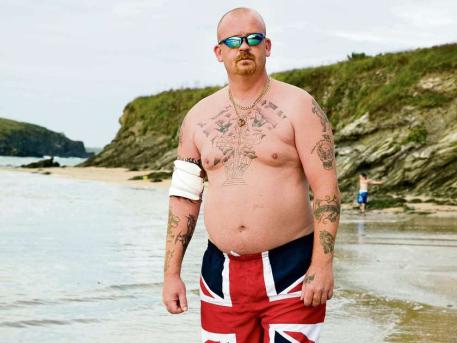
I’m quite pro-European as it goes.
Roughly translated, as I’m British, this means that as long as the Eurocrats stay in Europe and out of the UK, that’s fine. It's also because the main benefit is that I enjoy holidays without having to worry about changing currencies.
In truth, I'm quite pro-European because I've been intellectually entertained by the major regulatory programs, such as the MiFID and the PSD. Both have kept me busy for near a decade, and are valuable examples of widespread banking transformation unseen elsewhere in the world (if you haven’t noticed, we’ve just started another survey about this).
And yet, everything I read these days talks about the end of the euro. Here are just a few examples:
- Is it the end of the Euro? - The European Courier
- How the euro crisis end game might look - Telegraph
- I told Ken Clarke that the euro project would end in disaster - Telegraph
- Euro end game draws nearer Outside the Box - MarketWatch
Admittedly, many of these headlines are being sparked by the implosion of Greece, and the expectation that they may even need a third bailout. The fact that Greece has had to get a bailout for a second time, has not only inflamed those in Europe but those in Greece, where the punishment for being tied to a currency they don’t want is mass unemployment and budget cuts.
And the jokes are rife, much to the upset of my Greek friends.
Greece – a country that by its very name would make the Union slip-slide away.
Greece – a country where Euro means toilet, and that’s where it’s going.
What's the capital of Greece? About €3.
Mind you, humour is one thing that always crops up during a crisis, as demonstrated recently in Ireland, where they had a whole weekend comic fair dedicated to it:
Q: Why is the Irish economy in such a crisis?
A: Because they always think their capital should be Dublin.
Ireland’s been downgraded from AAA+ to AA. Before, they were a battery for the remote control, but now they're only good for a Walkman.
It gets worse.
A Greek, an Irishman, and a Portuguese go into a bar. The German pays.
Hmmm ... how many jokes can we take?
And perhaps some of this is no joke.
After all, the Germans saying that they’re going to holiday in the Greek Islands for the next ten years because they’ve prepaid ... may go down well in Germany, but any German trying that in a Greek hotel, may find themselves out on their arsch.
So what is the reality?
Well, the euro is at breaking point and Greece – along with Portugal, Ireland and Spain – are really testing its mettle.
And what happens if Greece does default on its debt?
Well, that’s no good for the country. They return to the drachma and become a former EU pariah that is Euronated on by everyone? What does that mean for the SEPA and the MiFID?
Not a great deal in my view, as the infrastructures are built and the remaining countries will continue to process via those infrastructures, including those that now fall away from the euro and back to their old currencies, such as Greece.
Greece will not rip out their EBA connected clearing just because they go back to the drachma. No. Instead, the systems continue but now support one less EU member state in the Eurozone.
I’ve blogged about that in more depth before.
Meanwhile, Europe will continue but with the tensions you would expect in any region where every country is radically different.
For example, the EU plans to have Turin and Lyons joined by a high speed train network have hit the rails in Italy. In riots over the weekend, Italians tried to stop consutruction work starting, as the plans will ruin an area of outstanding national beauty.
Meanwhile, the Brits and Germans continue to throw jokes at each other.
The Sun started it when they talked about a report from biologists at University College, London, who found that a Y chromosome found in nearly all German and Danish men is surprisingly common in Britain. This is due to the invasion of thousands of Anglo-Saxon immigrants in the fifth and sixth centuries, after the Romans left.
As a result, the Sun ran an article that opened with the lines: “do you have a craving for sausage or get upset about bad timekeeping? Then you might actually be German!”
They then set a test for readers to answer A, B or C to find out their “oompah-pah” rating, including questions such as:
What is your favourite number?
A. Seven.
B. Eight.
C. Nein!
With members of the opposite sex, are you attracted to their...
A. Bottom.
B. Eyes.
C. Herr.
Ladies, when your armpits are a little hairy do you...
A. Reach for the razor.
B. Wear a long-sleeved top.
C. Take every available opportunity to remove your top and put your hands on your head.
When you see a picture of the late Steve McQueen, do you think...
A. Ah... The Great Escape. What a film. What a hero.
B. Is that the fella who was in that PoW film who almost got away on a motorbike?
C. That sneaky escape artist - get him back in ze Cooler!
All in the worst possible taste, as demonstrated by Der Bild’s response:
When you hear the word dentist, do you:
A. Look it up in a dictionary
B. Remember your last visit 30 years ago
C. Open a bottle of beer with your last-remaining teeth
How do you like your beer?
A. Lukewarm
B. Without a head
C. By the gallon
Talking about holidays, what do you think of sun block?
A. It's for Krauts only
B. Doesn't taste good in gin
C. My skin is my sun block
When are English women at their most beautiful?
A. After 12 beers
B. After a day in the sun
C. In complete darkness
This was all accompanied by a photograph of the typical sort of British male we all aspire to be:

All of this is just general jest and fun.
However, one thing that will really hack off every European, whether member state or not, in crisis or not, is the news last week of the European President’s plans to build the Europa, a presidential palace that will cost €300 million to build.
In order to promote the idea, Herman van Rompuy spent €120,000 producing a fancy brochure outlining the plans for the building.
Not surprisingly, as you can see, it is already being nicknamed the E-Uterus for its womb-like central structure.

The building will be completed in 2014 and, knowing how Brussels works, this will go through without a whimper, as demonstrated by blogger, the Reluctant Bruxellois, who posted the true way in which the EU works.
A joke was proposed by a Belgian to be the Official European Joke, in order to improve the relationship between the nations, as well as promote our self humour and our culture. The Joke went as follows:
European paradise is when you are invited to an official lunch. You are welcomed by an Englishman. Food is prepared by a Frenchman and an Italian puts you in the mood and everything is organised by a German.
European hell is when you are invited to an official lunch. You are welcomed by a Frenchman. Food is prepared by an Englishman, German puts you in the mood but, don't worry, everything is organised by an Italian.
The European Council met in order to make a decision. Should the joke be the Official European Joke or not?
The British representative announced, with a very serious face and without moving his jaw, that the joke was absolutely hilarious.
The French one protested because France was depicted in a bad way in the joke. He explained that a joke cannot be funny if it is against France.
Poland also protested because they were not depicted in the joke.
Luxembourg asked who would hold the copyright on the joke. The Swedish representative didn't say a word, but looked at everyone with a twisted smile.
Denmark asked where the explicit sexual reference was. If it is a joke, there should be one, shouldn't there?
Holland didn't get the joke, while Portugal didn't understand what a "joke" was. Was it a new concept?
Spain explained that the joke is funny only if you know that the lunch was at 13h, which is normally breakfast time.
Greece complained that they were not aware of that lunch, that they missed an occasion to have some free food, that they were always forgotten.
Romania then asked what a "lunch" was.
Lithuania et Latvia complained that their translations were inverted, which is unacceptable even if it happens all the time.
Slovenia told them that its own translation was completely forgotten and that they do not make a fuss.
Slovakia announced that, unless the joke was about a little duck and a plumber, there was a mistake in their translation.
The British representative said that the duck and plumber story seemed very funny too.
Hungary had not finished reading the 120 pages of its own translation yet .
Then, the Belgian representative asked if the Belgian who proposed the joke was a Dutch speaking or a French speaking Belgian. Because, in one case, he would of course support a compatriot but, in the other case, he would have to refuse it, regardless of the quality of the joke.
To close the meeting, the German representative announced that it was nice to have the debate here in Brussels but that, now, they all had to make the train to Strasbourg in order to take a decision. He asked that someone to wake up the Italian, so as not to miss the train, so they can come back to Brussels and announce the decision to the press before the end of the day .
"What decision?" asked the Irish representative.
And they all agreed it was time for some coffee.
Chris M Skinner
Chris Skinner is best known as an independent commentator on the financial markets through his blog, TheFinanser.com, as author of the bestselling book Digital Bank, and Chair of the European networking forum the Financial Services Club. He has been voted one of the most influential people in banking by The Financial Brand (as well as one of the best blogs), a FinTech Titan (Next Bank), one of the Fintech Leaders you need to follow (City AM, Deluxe and Jax Finance), as well as one of the Top 40 most influential people in financial technology by the Wall Street Journal's Financial News. To learn more click here...

